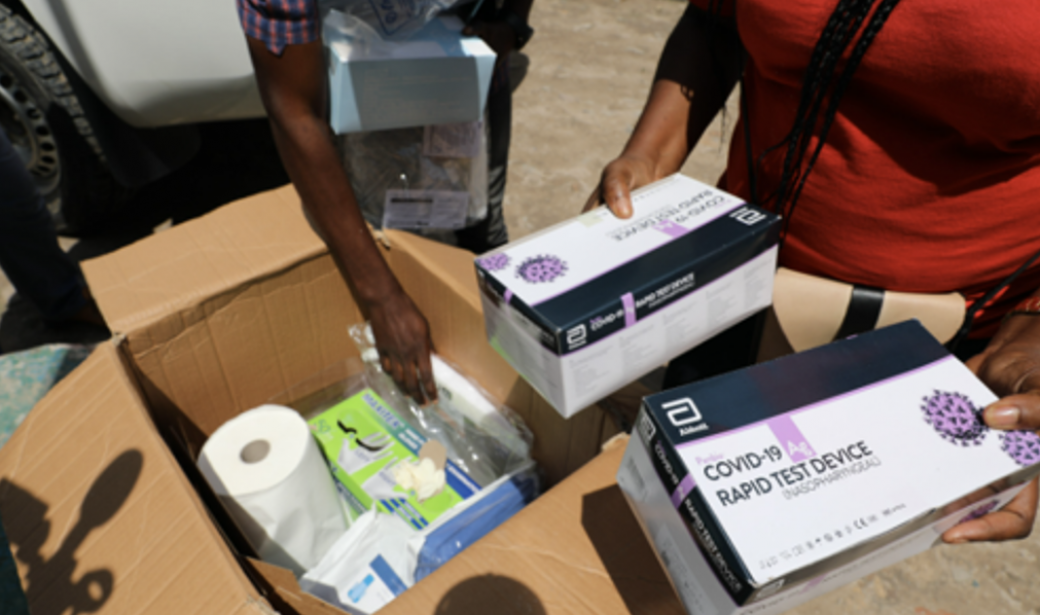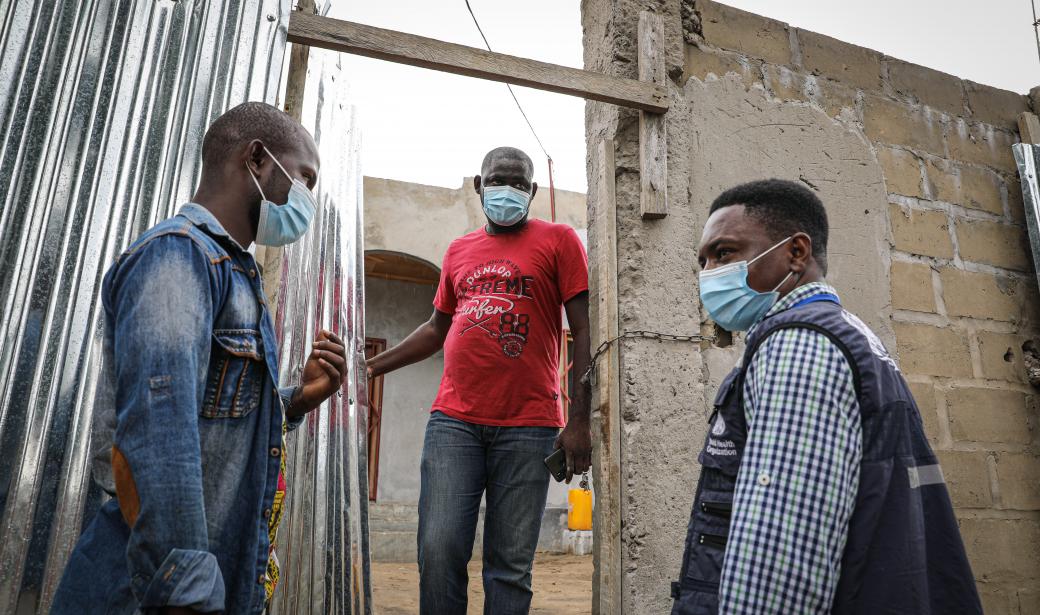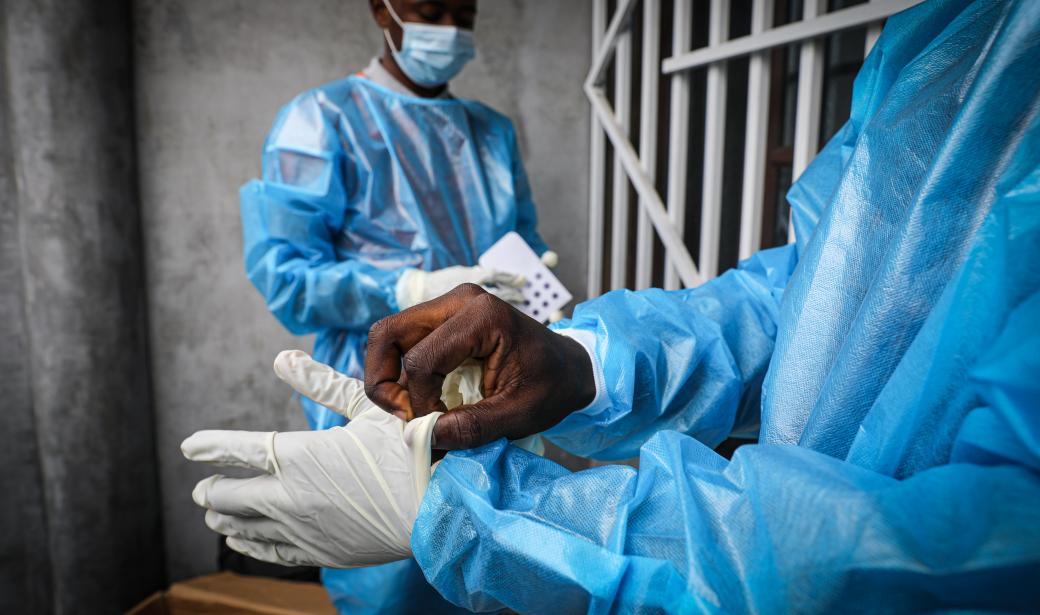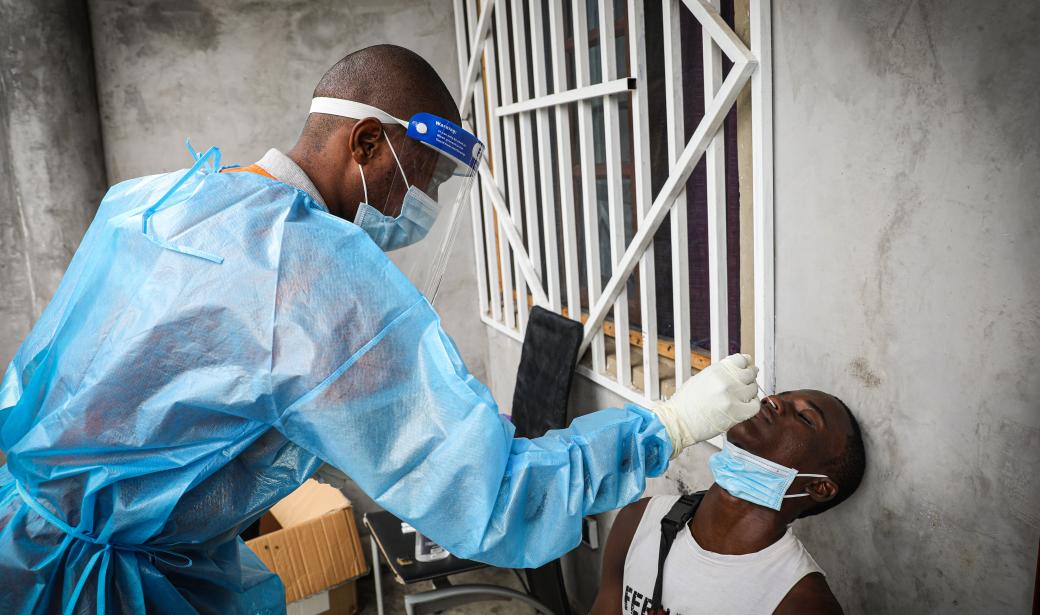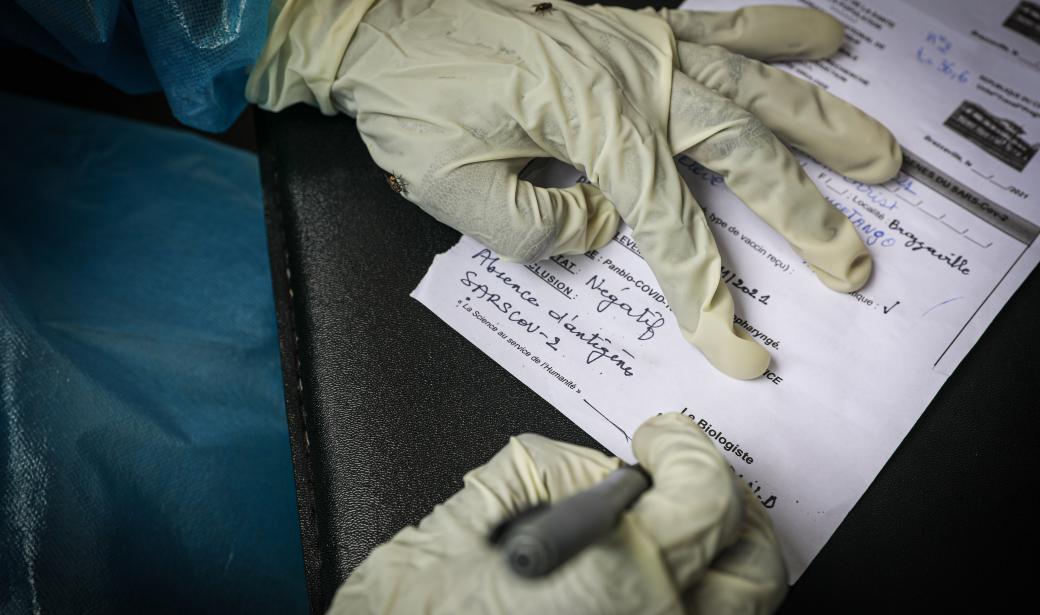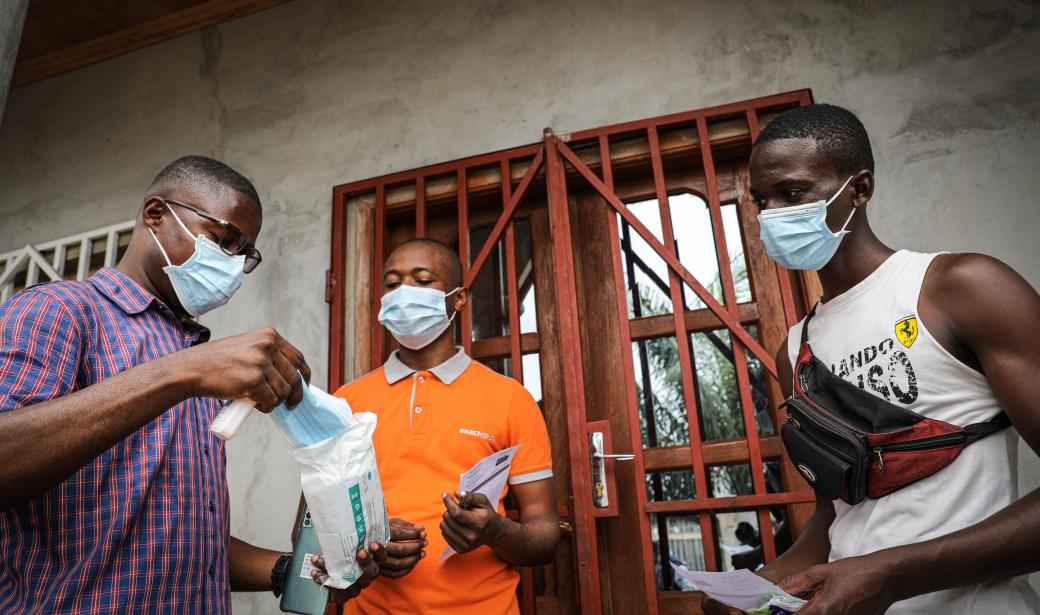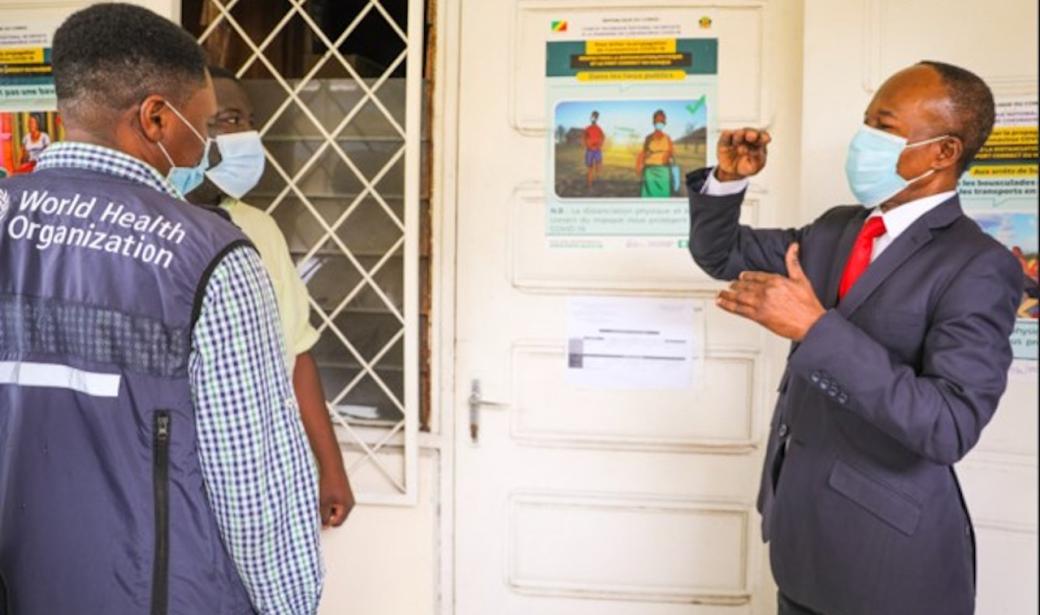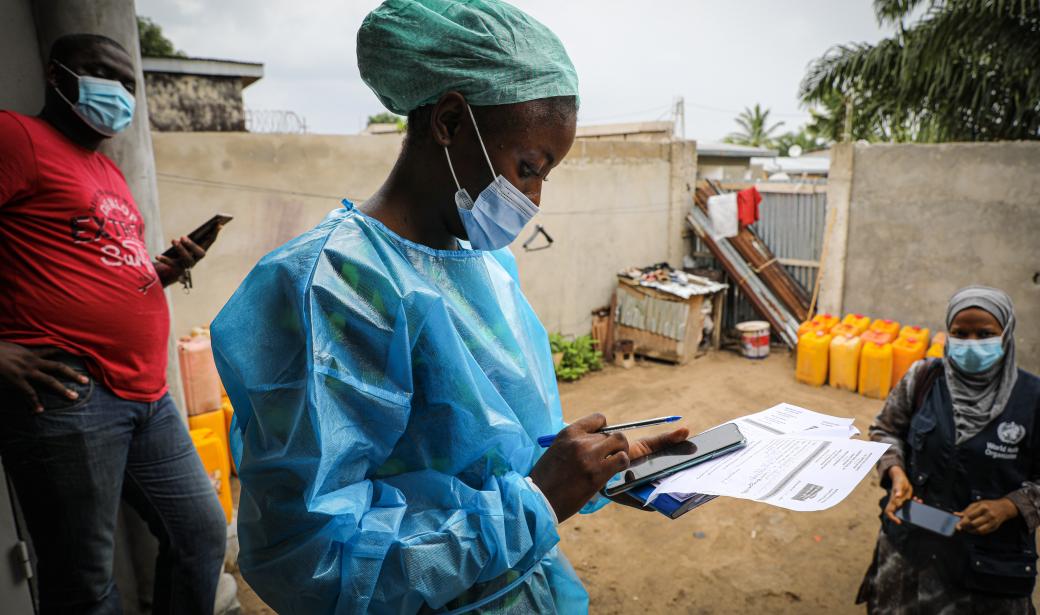Brazzaville – COVID-19 cases have been on the rise in the Republic of the Congo in recent weeks, prompting the authorities to ramp up control measures. A community screening campaign, with the support of World Health Organization (WHO), is underway in hotspot locations involving mobile health teams visiting communities to trace contacts of known COVID-19 cases, relay public health information and see that those who test positive receive treatment at home or referred to health facilities. The campaign kicked off on 25 October and runs for 10 weeks.
* Not real name
“We search for contacts to better detect cases and provide treatment, which in turn helps us protect our communities,” says Niclem Koundou, who heads one of the teams in Brazzaville.
COVID-19 testing has so far focused on symptomatic cases, although an estimated 65% to 85% of cases in Africa present few or no symptoms. Asymptomatic patients are a major cause of infection transmission.
“When we find a positive case, we evaluate their condition to decide whether they should isolate at home or be referred to a health facility,” he says.
Eric*, 36, receives the team after previously testing positive for COVID-19. He explains that he had been unwell for several days and when the symptoms worsened, he decided to take a COVID-19 test. The mobile team initially sought his consent for a home visit to also test those who were in contact with him. Eric’s 18-year-old nephew François*, who lives with him, will be tested.
WHO’s Dr Kalumbi points out that “this campaign will help break the chain of COVID-19 transmission by enabling early detection in communities and in health facilities. This will help bring down new infections and raise the country’s testing capacity.”
“The team explained that because we live together, I’m a contact and it would be wise to get tested,” he says. Community screenings are done on a voluntary basis using WHO-approved rapid antigen tests, which give results in just 15 minutes.
For François, who used to think COVID-19 was just a myth, the message is now clear: “Wear a mask, avoid crowds, wash hands regularly with soap or alcohol-based gel and above all, get vaccinated. I don’t have doubts anymore. I’m going to get vaccinated. COVID is real,” he says.
“I want people to stay hopeful,” adds Dr Mobousse. “Yes, COVID is here, but rest assured that we will resolve the situation, with the support of our partners. Life will go on.”
Brazzaville and the coastal city of Pointe-Noire are the epicentres of the COVID-19 epidemic in Congo, with more than 95% of the country’s cases. Based on results obtained in Brazzaville, teams will soon be deployed in Pointe-Noire.
Dr Ramses Kalumbi of WHO stresses that “if we’re to overcome this disease, communities must be at the heart of our interventions. Through this campaign, we’re tracking the virus in every nook and cranny to get rid of it for good.”
Communications Officer
WHO Regional Office for Africa
Email: dialloka [at] who.int (dialloka[at]who[dot]int)
Communications and marketing officer
Tel: + 242 06 520 65 65 (WhatsApp)
Email: boakyeagyemangc [at] who.int (boakyeagyemangc[at]who[dot]int)



